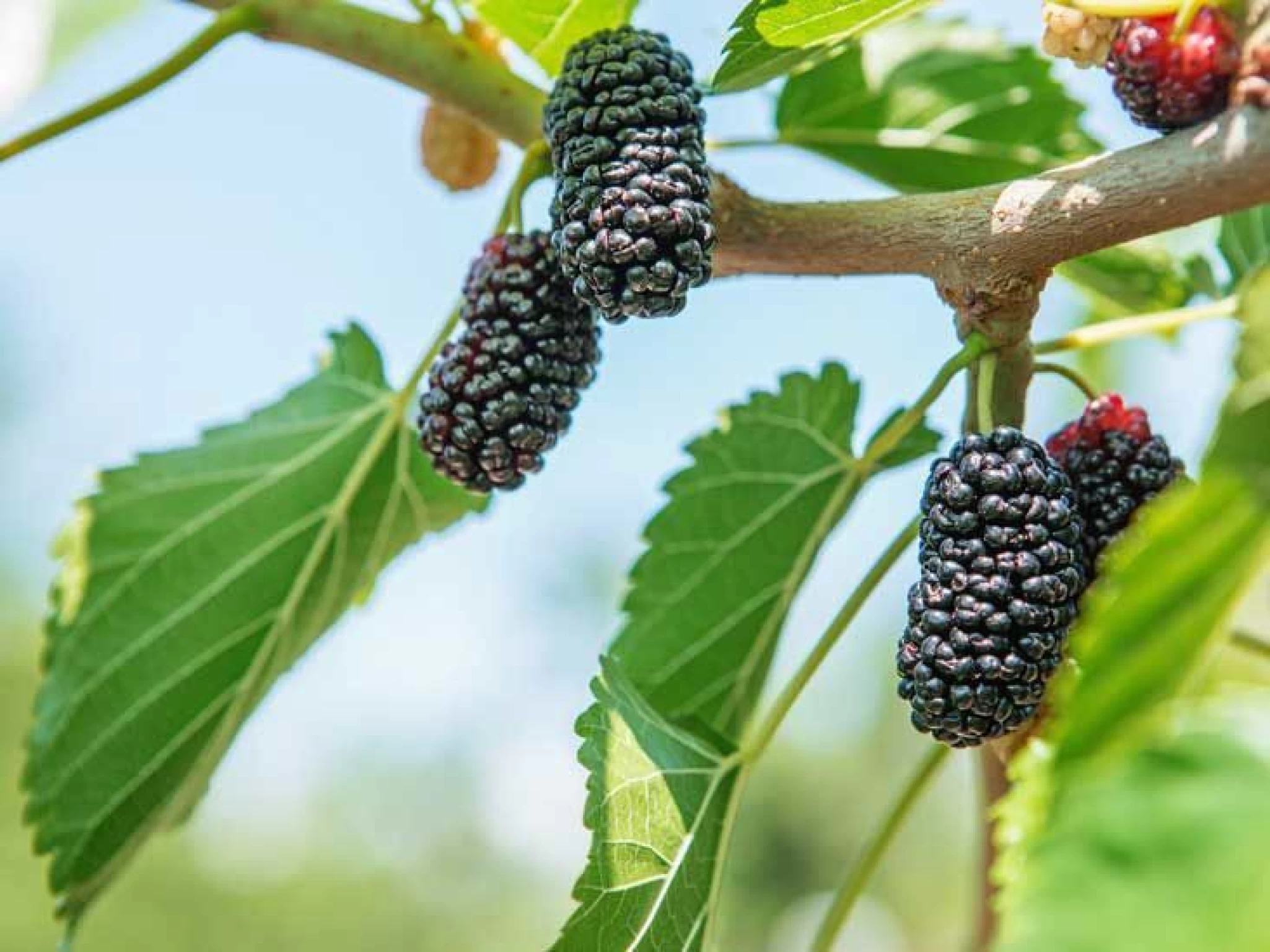The mulberry tree’s fruits contain tiny, edible seeds called mulberry seeds. These trees are indigenous to North America, Europe, and Asia. Mulberry fruits typically have a sweet, juicy flavour and come in various hues, including black, red, and white. Although mulberry fruits are frequently consumed raw or utilised in different culinary dishes such as jams, jellies, pies, and sweets, the seeds usually are not eaten. Tiny and crunchy, mulberry seeds have a distinct flavour. Therefore, when eating the fruit, they are frequently thrown away. Chief Dietician Sushma PS Jindal Naturecure Institute, Bangalore, shares mulberry seeds’ benefits, uses and effects.
Here Are Some Potential Benefits:
- Nutrient-rich: Protein, dietary fibre, healthy fats (omega-3 and omega-6 fatty acids), vitamins (including vitamin C and vitamin E), and minerals (such iron, calcium, and potassium) are all present in mulberry seeds, making them valuable sources of these nutrients.
- Antioxidant properties: Antioxidants found in mulberry seeds include anthocyanins, flavonoids, and resveratrol. These substances aid in the body’s defence against oxidative stress, speeding up ageing and leading to chronic diseases.
- Heart health: Antioxidants in mulberry seeds may support cardiovascular health by lowering inflammation, enhancing blood circulation, and decreasing the oxidation of LDL cholesterol (also known as “bad” cholesterol).
- Blood sugar control: Mulberry extracts, notably those made from seeds, might help regulate blood sugar. They may benefit patients with diabetes or at risk of acquiring the disease by regulating glucose metabolism and enhancing insulin sensitivity.
- Digestive health: Mulberry seeds include dietary fibre giving the stool bulk, encouraging periodic bowel motions and supporting healthy digestion.
Precautions To Keep In Mind If You Are Consuming Mulberry Seeds:
- Allergies: Some people could be allergic to mulberry seeds or other mulberry plant components. It is best to avoid eating or handling mulberry seeds if you have known allergies.
- Interaction with medications: You should speak with your doctor before adding mulberry seeds or supplements to your diet if you take any medicines, notably blood sugar-lowering drugs or anticoagulants (blood thinners). Mulberry seeds should only be used with other approved treatments because they may interact with certain of them.
- Seed toxins: Even though mulberry seeds are mostly benign, some mulberry tree species, particularly the white mulberry, can create toxins in their leaves and immature fruits. As a result, it’s critical only to eat ripe mulberries and toss any unripe or rotten fruits or leaves.
Side-Effects Of Mulberry Seeds:
- Digestive issues: If you’re not used to eating meals with a lot of fibre, eating a lot of mulberry seeds may make you feel bloated, gassy, or have diarrhoea.
- Allergic reactions: People can be allergic to mulberry seeds or other mulberry plant parts. Itching, redness, swelling, and breathing problems are all allergic reactions.
- Interactions with medications: Certain drugs may interact with mulberry seeds. People taking diabetes drugs should closely monitor their blood sugar levels and speak with a healthcare provider since they might lower it.
